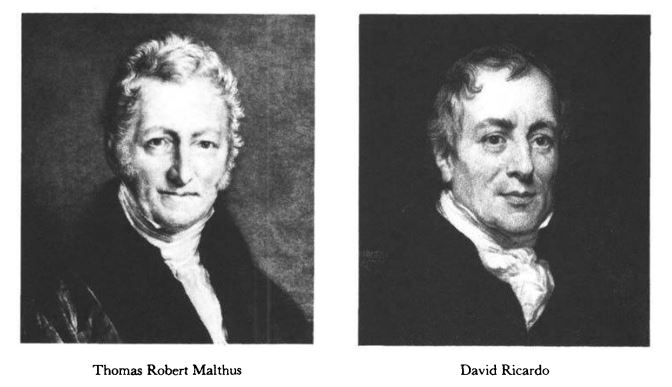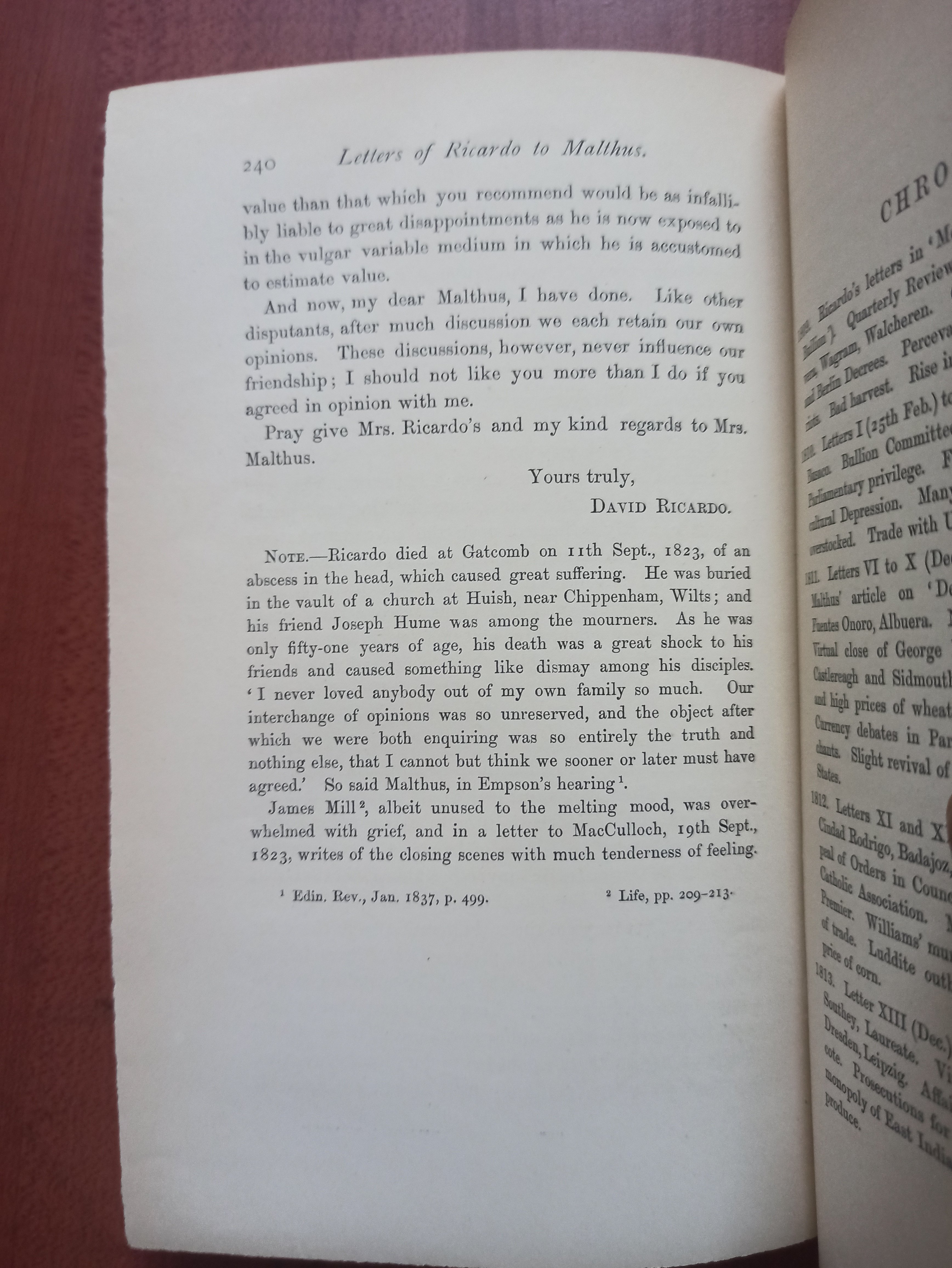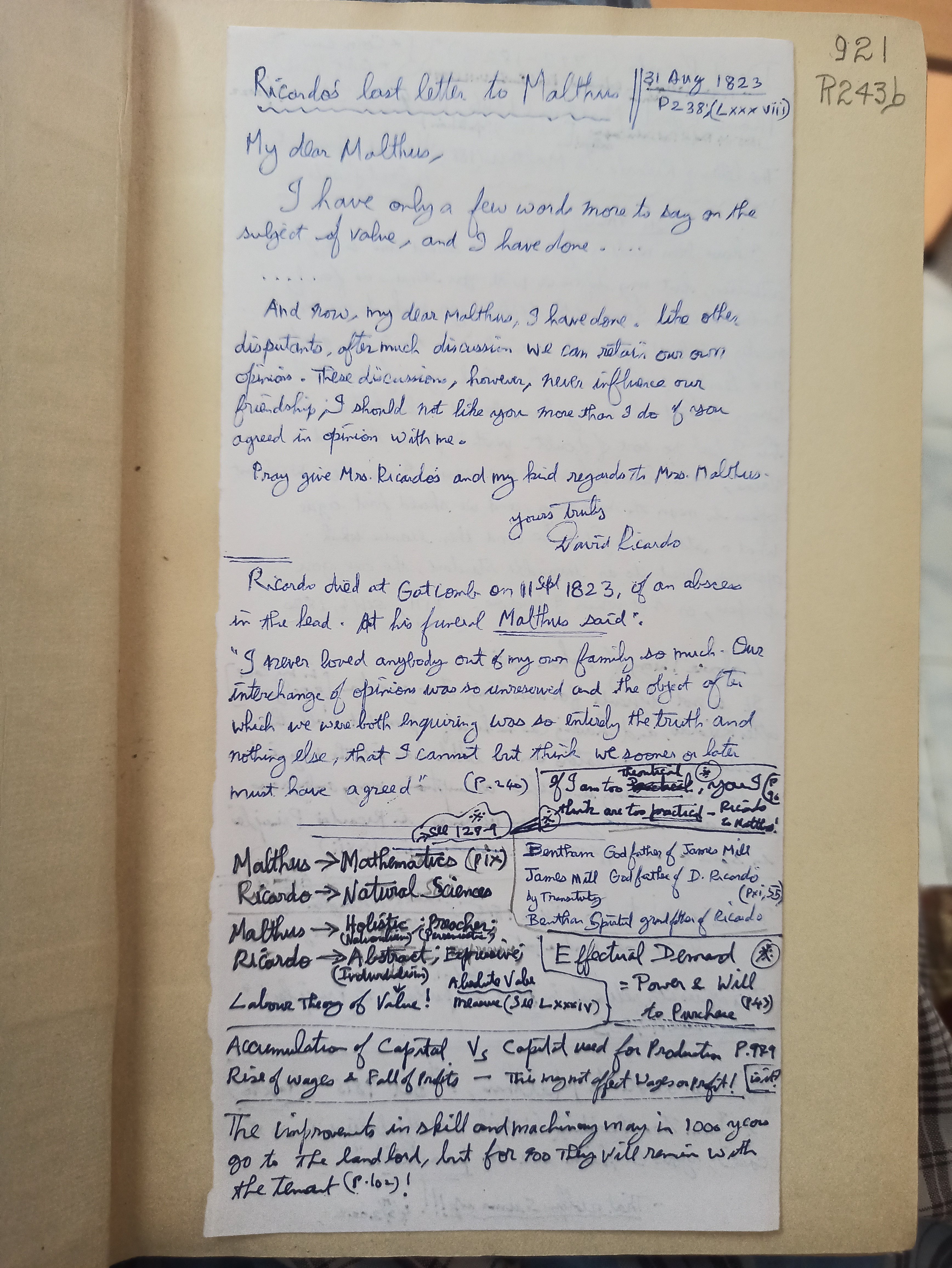David Ricardo who wrote that in a letter to Thomas Robert Malthus on 7th Oct 1815.
See, The Letters of David Ricardo to Thomas R. Malthus (1811-1823), edited by J.Bonar (page 96).
Though Ricardo (1772-1823) and Malthus (1766-34) were great opponents when it comes to economic theories/reforms…
"The miracle is not that they disagreed, but that they could stand each other. It appears, though, that their long and intimate collaboration, and their friendship as well, thrived on their continual disputations. It is as though each served as the anvil for the other's hammer, and their ideas were hammered out in their efforts to persuade each other. They were two men obsessed by a common enthusiasm, tirelessly pursuing a common goal: to understand the economy. But they did not share a common vision of the good society and thus were condemned to wrestle interminably, though remarkably fruitfully, over the roles of the social classes."
– read Dorfman’s Thomas Robert Malthus and David Ricardo


Agreements and Controversy:
Richard writes “I have been reading your book a second time with great attention, but my difference with you remains as firmly rooted as ever. Some of the objections you make to me are merely verbal; no principle is involved in them; the great and leading point in which I think you fundamentally wrong is that which Say has attacked in his letters. On this I feel no sort of doubt. With respect to the word value, you have defined it one way, I another. We do not appear to mean the same thing, and we should first agree what a standard ought to be and then examine which approaches nearest to an invariable standard, the one you propose, or that which I propose.” Page 171
Ricardo’s last letter to Malthus:



Malthus on Ricardo
Ricardo died at Gatcomb on 11th Sept. 1823, and on his funeral, Malthus had supposedly said,
"I never loved anybody out of my own family so much. Our interchange of opinions was so unreserved, and the object after which we were both enquiring was so entirely the truth and nothing else, that I cannot but think we sooner or later must have agreed.'
To sum up,
“It is not difficult for men living two generations after Ricardo [as Bonar says, but in my case its 200 years later!], and having (as he himself expressed it) ‘all the wisdom of their ancestors and a little more into the bargain,’ to point out many unjustified assumptions, many ambiguous terms, and even many wavering utterances, in Ricardo’s ‘Principles,’ in spite of their appearance of severe logic.” – page xvii
History of the development of economic thought (or any thought – in fact) is important to know so that we appreciate how such great minds came up with such pioneering works and it will guide us to build upon it…
My notes:




Leave a comment